Introducing The Ironclad Beginners Guide For Keeping Chickens
Keeping chickens have been domesticated for most of human history, and still remain a mainstay of many homesteads, farms, and even urban family homes around the world even today.
They just naturally fit into life with people.
You can raise chickens for their eggs and without knowing it, you become friends with them, as they make wonderful pets and companions.
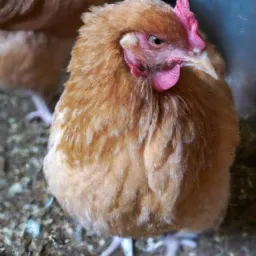
Chickens are practical pets that simply make a lot of sense to have around.
Despite all these good things and the history chickens have had with people, however, they do require some extensive care.
The Care Of Keeping Chickens
While this shouldn’t come off as overwhelming for someone new, you should understand that chickens are needy.
If their needs aren’t met, the chickens’ health and well-being fail drastically and they no longer become wonderful additions to a family…
And this is not their own fault.
It might seem overwhelming at the start but as with anything…
Until you get used to something, you will be thinking as time goes on. ‘Why did it all seem so hard.’
This is a feeling you will feel because you don’t want to get it wrong, especially when it comes to a living thing.
Believe me, keeping chickens will become second nature as time goes on, and you will learn a lot from your chickens as well along the way.
Here are the very basics of chicken care every new chicken keeper needs to know and understand before they jump into chicken keeping.
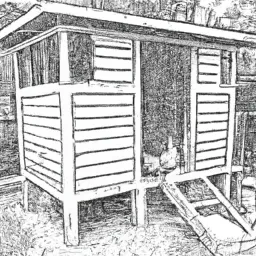
Chicken Housing
As a beginner, the first thing you need to consider is how you’ll shelter your chickens.
Chickens need to live in a safe environment that’s designed and built specifically for them.
As we do to keep them out of the elements and away from threats of the predator kind, and of course somewhere to safely lay their eggs.
Chicken Coops need to Serve Several Functions
We also need to be able to keep the chickens sheltered from bad weather as rain and cold are two big enemies of chickens, as well as heat in some areas.
Chicken coops need to be able to house chickens in a way that’s healthy and clean, with good ventilation.
Plus, chicken coops also need to keep chickens safe from predators even in your backyard…
Really!
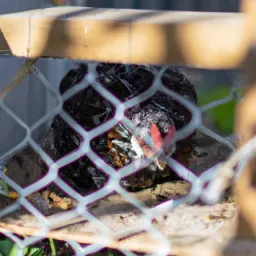
If you think that predators only exist out in the countryside, then think again.
Just because you live in the suburbs and have a small backyard with a high fence does not mean that there are no predators, they are here as well.
You need to consider the skies, yes threats from the skies like hawks and other birds of prey are just as big a threat as on land.
And the snake is going to be in your backyard at one time or the other, they slither through your backyard fences no matter how high they are because you might have an overhanging tree from the neighbours.
So the snake is bound to go up the tree onto your fence and enter your backyard.
A chicken coop needs to keep the chicken dry and out of the wind.
This means they need to be constructed sturdily. It needs to have a roof that doesn’t leak and walls that don’t let the wind blow right in.
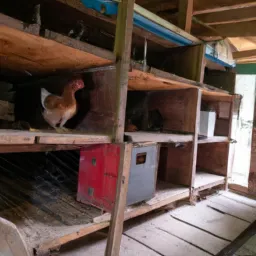
Lighting in a coop can sometimes offer comfort to chickens, especially to the young chicks.
Heating chicken coops is generally unnecessary and can actually be detrimental to a chicken’s health as well as being a big fire hazard.
I have never used one myself, but I live in a temperate climate.
Chicken coops need to have basics inside for comfortable chicken living, such as a roost – which is a perch, nest boxes, and a place for food and water access.
The floor of the coop can be made of many materials and can be made to use lots of kinds of litter (there are lots of types of litter that chicken keepers use.
Such as wood shavings, sand, straw or hay, etc.), but the floor needs to be fresh and dry at all times no matter what litter is used when keeping chickens…
Surfaces in the coop can gather a lot of poop, so coop construction that discourages “poopable” areas other than the floor is ideal.
See also How To Keep Chickens Cool In The Hot Weather
For example, nest boxes should be made so that they are lower than the roost bar or platform (chickens like to roost in the highest spot possible) and they need to have slippery slanted roofs to discourage a chicken from not only pooping in the nests but also from pooping all over the tops of the boxes.
And they do…
Ventilation is one problem that’s hard to solve- and many people confuse being out of drafts for good ventilation.
Good ventilation means that the hot wet air naturally generated in the coop by the birds and their droppings can leave the coop easily.
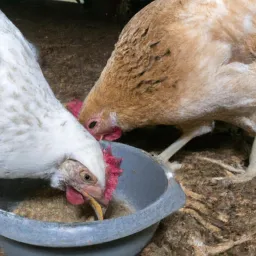
This is normally done with some sort of pipe or vents along the top of the coop so that the warm air naturally goes up and out of the pipe.
Fresh air can circulate from a door or window in the coop naturally and passively without creating wind in the hen house.
This can help your chickens avoid air quality problems which can make them sick, and frostbite issues in the cold temperatures of winter.
And finally, the coop needs to be predator-proof.
There are all sorts of predators that want to eat chickens – from raccoons to hawks. Snakes like to eat eggs and baby chicks.
Even the neighbour’s dog can be a serious threat if it gets through the fence if it’s not exactly dogproof, if a dog wants to get through and your fence is flimsy – they will.
The coop should be well constructed with good locks and fencing that can’t be ripped apart or manipulated/mauled by a predator.
Cracks and holes should be sealed if possible.
A well-fenced chicken yard is a good start to keeping out most predators and a covered and protected run keeps the chickens safe from aerial predatory birds.
The general rule on space per chicken is thus: For the coop you need 4 square feet per standard-size bird and 2 square feet per bantam.
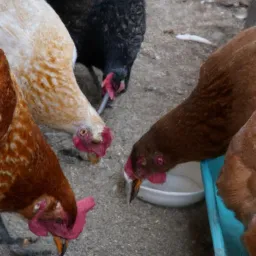
In the run, you need 8 square feet per standard sized chicken and 6 per bantam.
And of course, the more room you can provide in their living quarters, the better.
Chicken Food
Thankfully, feeding chickens and keeping their nutritional needs fulfilled is simpler than housing.
There are lots of formulated chicken feed available that’s scientifically proven to provide all the necessities of chicken nutritional needs.
You can find these feeds at any stock feed store, and even at your local supermarket, but I tend to go with the feed at the stock suppliers.
Not only do you get the choice of bigger bags of chicken food, but it’s usually cheaper.
With keeping chickens, supplementing this diet isn’t necessary, but chickens do enjoy it.
So give it to them…
You can feed your chickens just about anything you eat yourself- in fact, many chicken keepers use their chickens to recycle and use the kitchen scraps that they don’t want, so food doesn’t go to waste.
It’s the way they were fed previously, there was not as much manufactured chicken food around in the old days of keeping chickens, they were fed scraps from the kitchen and thrived.
Garbage kitchen scraps turned into delicious eggs?
Yes, please!
Other supplements such as scratch grains or plain cracked corn are also other additions to the regular pellet or mash ration that you can buy.
Some even plant a part of their garden just for their chickens!
You may find yourself sampling different chicken feeds to find one your flock likes best.
But you don’t have to serve it up on a silver platter, unless you want to of course…
Chicks need special food, and layers need another kind.
Thankfully the info on what to feed and when is always printed right on the bag, so you know what you’re feeding.
Feeders Designed For Chickens Are Readily Available
Whatever way to choose to offer your feed to your flock is up to you, but the same rules apply to food- food has to be kept from getting poop in it, and it has to stay dry and fresh when keeping chickens.
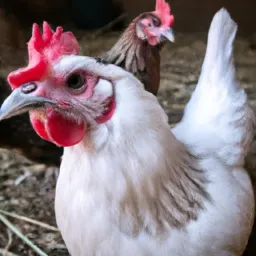
Water Feeders are also something that chickens need constant access to, and they need to be clean fresh, and always available.
See also Which Chicken Breed is the Most Common in Australia and Why
Chicken waterers are easy to find.
Some have to be heated to keep water from freezing solid in the winter.
There are lots of DIY watering systems available to look at on the internet, as chicken keepers are never satisfied with watering systems.
But, a basic bucket cleaned and filled daily works for most.
Disease And Overall Health
Unfortunately, chickens are prone to a lot of parasites and sickness, a lot like people and other pets are.
Chickens also do things like eat their own eggs, or even cannibalize.
Chickens need to stay engaged and mentally healthy, too.
A clean living environment that is well-ventilated and plenty of clean water and good food is a good start to helping keep sickness at bay.
Having a large space to graze and peck at is necessary – keeping in mind the general requirements for minimum space needs will also help keep birds happy and healthy.
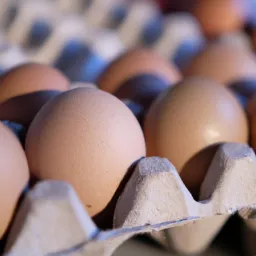
And, while chickens are needy, like any other pet, once their needs are met, they make wonderful additions to the family.
As you see…
Keeping Chickens is an exciting endeavor to get into, and they have become so popular now, in fact, they are walking their way into so many suburbs and backyards now that people have become great fans of the chicken.
Feathered Friends in the Suburbs: A Cluckin’ Good Guide to Keeping Chickens with a Dash of Humor in It!
Who says the suburbs are just for humans?
If you’re tired of the same old pets and seeking a unique experience, it’s time to consider keeping chickens!
Not only do they provide fresh eggs and endless entertainment, but they also make excellent companions.
1. Poultry Permit Playground
Before you embark on your suburban chicken adventure, it’s crucial to check local regulations.
The “Poultry Permit Playground” might sound like a whimsical theme park, but it’s where you’ll find the rules and regulations governing chicken keeping.
From coop size to noise restrictions, make sure you’re legally allowed to keep these feathered friends nearby.
2. Coop Couture
When it comes to chicken coops, forget the traditional barn-like structures.
Let your imagination run wild! Picture a coop that resembles a miniature suburban home, complete with white picket fences and window boxes.
Not only will it keep your chickens safe and secure, but it’ll also add a touch of whimsy to your backyard.
3. Egg-cellent Companions
Chickens are more than just egg-laying machines; they’re quirky and lovable creatures with distinct personalities.
From the bossy “Hen Reitta” to the curious “Feather Locklear,” each chicken brings something unique to the flock.
Get to know your feathered companions, and you’ll soon find yourself engaged in a never-ending chicken soap opera.
4. The Cluck that Keeps on Giving
Forget about grocery store eggs.
With your very own flock, you’ll have a constant supply of organic, free-range eggs right at your doorstep. Imagine the satisfaction of cracking open a freshly laid egg for your morning omelet.
Plus, you’ll be the envy of your neighbors who will be clucking with jealousy.
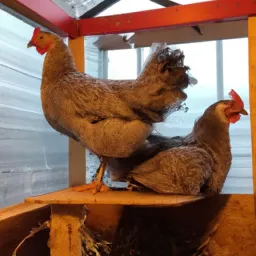
5. Suburban Chicken Social Network
Believe it or not, there’s a vibrant community of suburban chicken enthusiasts just waiting to welcome you with open wings.
Join online forums, attend chicken meetups, and swap stories about your feathered friends.
It’s a wonderful way to connect with like-minded individuals and learn from experienced chicken keepers.
6. Chicken TV: Reality Show Edition
Who needs cable TV when you have your own reality show right in your backyard?
Witness the daily dramas, hilarious antics, and heartwarming moments that unfold among your flock.
From daring escapes to synchronized chicken dances, you’ll have front-row seats to a show that never fails to entertain.
Keeping chickens in the suburbs is an egg-ceptional adventure that combines practicality, sustainability, and a whole lot of fun.
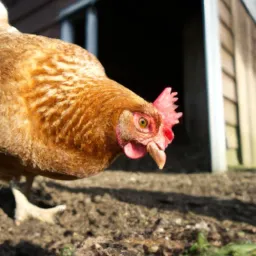
As you dive into this feathered world, remember to embrace the regulations, get creative with your coop, and enjoy the endless joy that these clucking companions bring. So, what are you waiting for?
It’s time to let your suburban neighborhood go from ordinary to extraordinary with a flock of fabulous feathered friends. Happy chicken-keeping!
